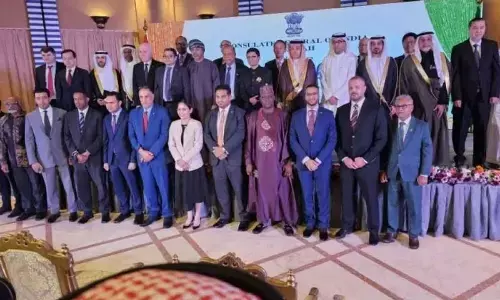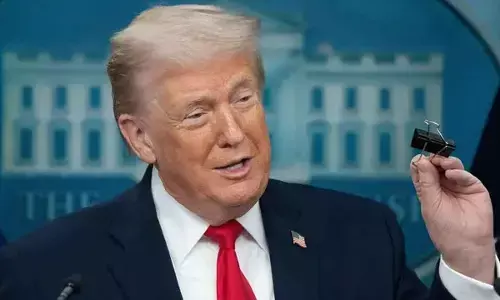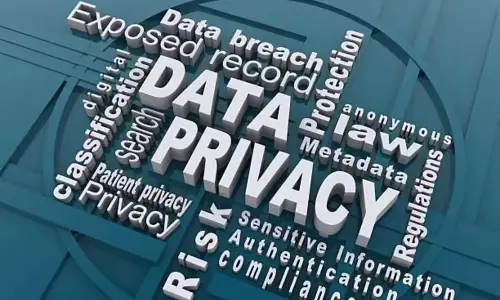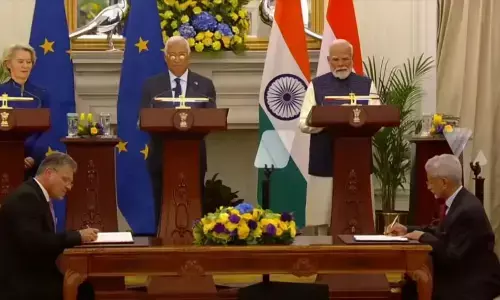Making ethical sense of moral values
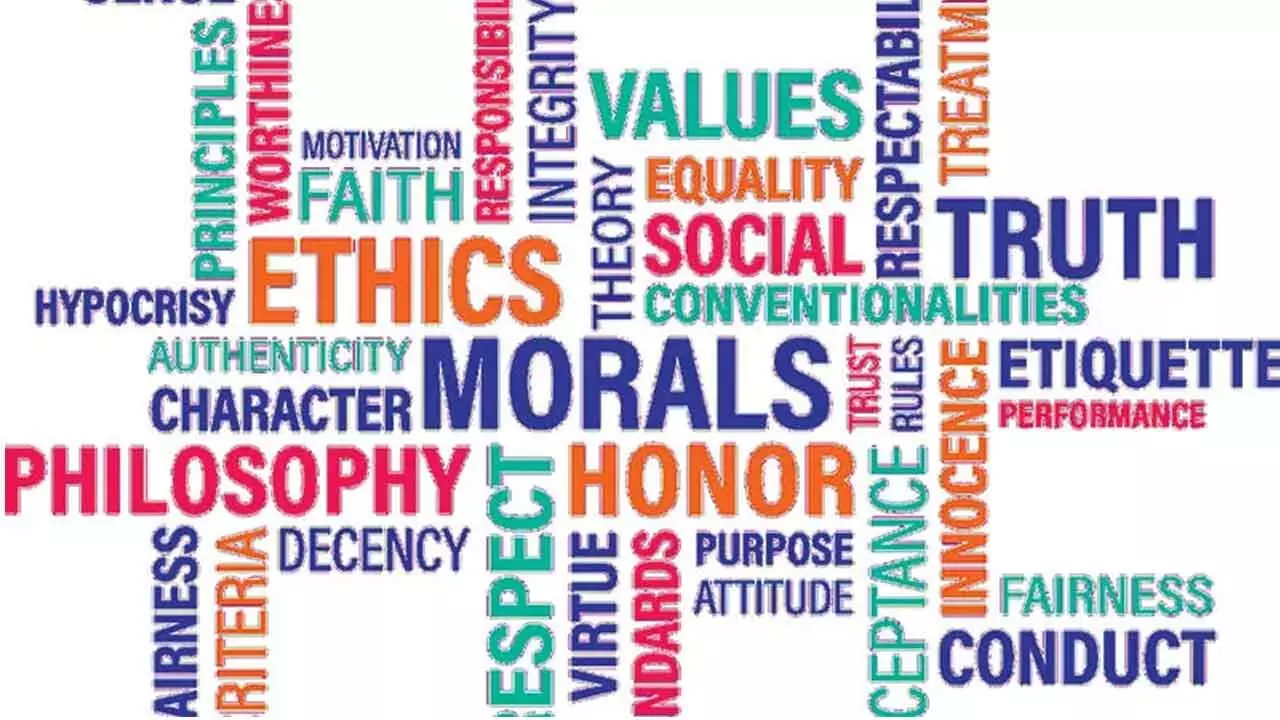
Ethical and moral values vary sharply, across religions, regions, cultures and over time
Ethical and moral values vary sharply, across religions, regions, cultures and over time. Abortion, for example, is prohibited for Catholic Christians, but the law permits it in India, no matter what religion one is professing.
Morality is the standard by which we judge other people - Oscar Wilde.
My association with the areas of ethics and morals, especially in the domain of governance, began with a request by K. Padmanabhaiah, a retired civil servant, now serving as the Chairman of the Court of Governors of the Administrative Staff College of India, to take lessons for civil service aspirants.
After having taken some classes, I realised how difficult it was for students, to put the material together. I hit upon the idea of compiling my lessons into a book. That is how my book (Ethics in Governance – Resolution of Dilemmas with Case Studies) came to be published.
Sometime later, I was invited by Dr. B. Somaraju, eminent cardiologist, to become a Member of the Ethics Committee of the CARE Foundation, set up by CARE Hospital, where he was working. I accepted and had firsthand exposure to the field of professional ethics and morals vis-à-vis practice of medicine, and the manufacture, and marketing, of drugs and pharmaceuticals. The Chairman was a former High Court Judge and the members brought to the table rich experience from different fields of expertise in medicine. The deliberations in the meetings were lively, animated and informative. It was a truly eye opening experience for someone new to the subject.
Ethics, whose dictionary meaning is the philosophical study of moral values and rules relating to what is right and what is wrong, is clearly an abstract discipline, its precepts not amenable to verification/validation by the scientific tools of experiment, observation and inference, as first postulated by Sir Francis Bacon.
It may also be defined as a field that deals with questions of organizing one’s thoughts, words and deeds in a manner that conforms to the settled norms of societal values.
Easily the most interesting of the activities I have undertaken after superannuating from service, has been lecturing on the subject of ethics in governance to various groups, including those preparing for Civil Services examinations.
Recently, while preparing material for a lecture on the subject to a group of officials from different departments of the government of Gujarat, I looked at the question, of the application of the values of ethics and morals, to two issues; namely, the tariff war declared by US President Donald Trump, and the terrorist attack at Pahalgam.
The aggressive tariff war triggered by Trump’s decisions has sent shock waves through global markets, triggering panic among businesses and consumers, and escalating trade tensions between the US, Canada, Mexico, China, and even Europe. Quite obviously, domestic industries in the US are full of praise for what has been done since most of their products stand to benefit with foreign brands of the same products becoming more expensive. The move is also expected to raise over $ one trillion in revenue over the next decade for the country, leading to a spurt in domestic investments. On the other hand, there are experts who argue that prices of a range of imported goods will go up, from clothing and coffee to alcohol and electronics, pointing out that import of such goods may decline, increasing the cost of domestic products in the same areas.
While that may be the scene within the US, as far as India is concerned, it is believed that sectors such as IT and software, pharma, textiles, automobile industry, and agriculture may be hit adversely.
Clearly, so far as President Trump is concerned, at least in his own belief, his country and its citizens stand to benefit from his initiatives. That there are those, who believe quite the opposite, is another matter altogether. And if industries, workers, and consumers, in other countries suffer, it has to be accepted as a fallout that was inevitable. Evidently, the ethical implications of Trump’s action are a function of the persuasion of those analysing them.
Coming to the Pahalgam incidents, terrorism is generally considered morally wrong, as civilians are often indiscriminately targeted and fear and violence are used as instruments for the achievement of political goals.
There are, on the other hand, those who argue that terrorism can be justified in specific circumstances, such as weak minorities being oppressed and ill-treated by a tyrannical majority.
Another significant aspect of ethical and moral values is that they vary sharply, across religions, regions, cultures and over time. Abortion, for example, is prohibited for Catholic Christians, but the law permits it in India, no matter what religion one is professing. Likewise, a Muslim can take more than one wife, while polygamy is not permissible under the Hindu law in India. Another example is that of prohibition of the possession and consumption of alcoholic beverages. It was illegal for a short while in the erstwhile Andhra Pradesh. But, today, it is not so in either Andhra Pradesh or Telangana. Even at the time when prohibition was imposed in the first instance in Andhra Pradesh, it was not in force in the neighbouring Karnataka. Drinking or possessing liquor, therefore, can be legal or otherwise, depending on the time and place. Clearly, as the saying goes, what is sauce for the goose is not sauce for the gander. In daily life, white colour has customarily been associated with knowledge, purity, good and right. And, black, on the other hand, with ignorance, contamination, bad and wrong. Most day-to-day experiences in life, however, lie in the area between the two extremes, namely, the grey area. There is no such thing as pure white or pure black.
The same is the case, for example, with probity, and competence. They usually coexist in most people. We often find that thoroughly honest people are incompetent. And very efficient people are persons of doubtful integrity. While on the subject, I recall the case of a senior officer who was intending to suspend a Tahsildar. When a friend asked him why he intended to punish a person who was obviously very clean and honest, the officer’s reply was that the Tahsildar was so incompetent, that his entire salary was illegal gratification!
A somewhat similar approach is called for towards the impact of development effort on natural resources. Development activities, such as transport, industry, and agriculture invariably impact adversely upon the quantity and quality of natural resources such as land, water and air. We cannot abandon such imperatives in order to preserve natural resources. On the other hand, it is our duty to future generations, and posterity, to defend, protect, and preserve those resources. The grey area again! It demands a sensible and wise balance between use of resources and their preservation.
To end this rather serious discussion on a lighter note, here is what I heard about the Professor of Ethics telling the student of Art.
“You have to draw the line somewhere!”
(The writer was formerly Chief Secretary, Government of Andhra Pradesh)








